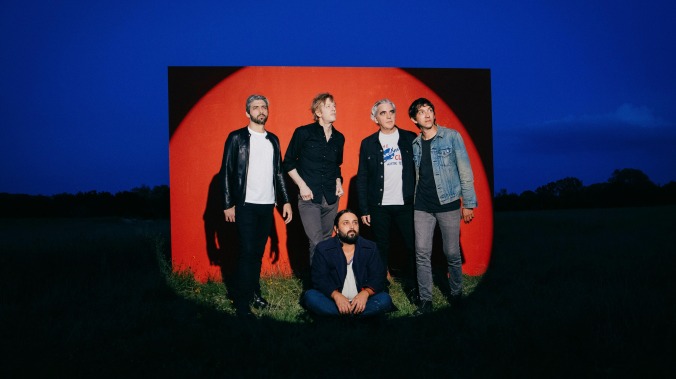Spoon's Lucifer On The Sofa finds new meaning in familiar territory
The band's 10th album is as adventurous and forward-looking as ever

Reinvention is second nature to Spoon. During its ill-fated mid-’90s stint on a major label, the Austin band favored noisy, wiry indie rock. But once the group re-emerged on an independent label in the early 2000s, its music shifted to a cleaner, more minimalist style: power-pop brimming with nervous energy, funky soul-rock, reflective mod-rock. Later still came excursions into electronic music, blues, and keyboard-dappled, early ’80s radio rock.
Not every band can pull off transformations so successfully—but, then again, the members of Spoon know that experimentation only succeeds when paired with strong songwriting. And Lucifer On The Sofa is one of the band’s most focused songwriting efforts yet: Every note feels deliberately placed and well-constructed, with crisp arrangements (the piano-sprinkled ballad “My Babe”), piercing hooks (the elastic “The Devil & Mr. Jones”) and sweeping dynamics (the melodramatic, glammy art-rock waltz “Satellite”).
This precision enables some rather impressive nuance on Lucifer On The Sofa’s moodiest songs, which also happen to be the record’s standout offerings. “Wild” has the easygoing rhythmic cadences of Primal Scream circa Screamadelica to match pointed lyrics in search of redemption (“And the world, still so wild, called to me / I’d been caught, I was lost, on my knees”), while the reflective “Astral Jacket” is a twilight lullaby with a gentle bossa nova beat and intimate vocals.
Lucifer On The Sofa’s evolution is a byproduct of time, process and geography. Co-produced with Mark Rankin (Adele, Queens of the Stone Age), the album is the group’s first studio full-length since 2017’s Hot Thoughts and the first since 2007’s Ga Ga Ga Ga Ga without longtime bassist Rob Pope. Notably, Spoon started Lucifer before the pandemic and finished it during lockdown, which led the band into different creative territory. Inspired by Hot Thoughts-era live performances, Spoon demoed and planned out their new songs before recording them. “We kept discovering that we were playing the songs from the last album better on the road than they were on the record,” Daniel told NME. “The idea was to take that energy that you get from playing songs live and being on the road and hashing out the songs, using that energy first.”
 Keep scrolling for more great stories.
Keep scrolling for more great stories.
